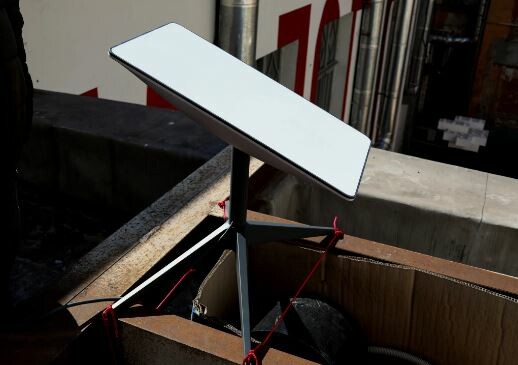SpaceX, the operator of the Starlink internet service, has notified subscribers in Sudan that it will cease operating in the country effective 30 April.
The company stated in a widespread message to service users in Sudan: “According to the terms of use, the service is only allowed to be used in countries authorized to operate the service.”
The message indicated that owners of Starlink devices were using them in areas that were not included in the map of operational areas they had previously reviewed in the terms of use.
The company stated that it agrees to the use of its satellite internet service during temporary travel and transit lasting no more than two months.
Hamdan Mahmoud, a network engineer, told Radio Tamazuj, that the Starlink service, according to the company’s message, will cease operations in countries where the company has not been granted permission to operate.
“The decision to suspend the service came following objections from telecommunications companies in Sudan to the operation of Starlink service in the country, prompting the Ministry of Communications to file a complaint to SpaceX demanding the cessation of the service in Sudan due to the lack of prior licenses for the company,” he explained. “The service will be discontinued on April 30 for all devices subscribed to the regional package, but there is another option for Starlink device owners to continue operation, which is to use the global service.”
Mahmoud said that after the devices are discontinued, their owners can return them to the authorized countries or wait until their countries grant the company licenses to operate on their territories.
Al-Tayyib Sanad, an internet user, told this publication that the Starlink service provided internet access to Sudanese after network disruptions due to the ongoing war.
Meanwhile, Ali Jafar Hamid, a resident of East Darfur State, said after the suspension of other internet services for more than 6 months, they relied on the Starlink service.
“The government should allow Starlink to continue operating in the country,” he stated.
On his part, Sheiba Adam, who provides internet services to the public through Starlink, confirmed that the service discontinuation resulted from the company’s policy that does not allow enjoying its services in unlicensed areas.
“The option is to activate the global package, with the difference being an increase in financial cost,” he explained.
However, industry experts say a shadow network of black market dealers, some in the United Arab Emirates, has been selling SpaceX Starlink kits to Sudanese rebels and Russian forces in Ukraine.
According to Mail Online, the underground trade of these Elon Musk-manufactured satellite dishes, which provide access to low earth orbit (LEO) broadband internet, has helped militants operate spy drones and coordinate attacks everywhere from the civil wars in Yemen and Sudan, to the Russian-occupied regions of eastern Ukraine, like Donetsk and Crimea.
“In North Africa, paramilitaries allied with the Russian-backed Rapid Support Forces (RSF) in Sudan have ordered hundreds of Starlink terminals, according to third-party sellers and Sudanese military officials,” the Mail Online said.
Some industry experts believe Elon Musk should be able to shut down the smuggled Starlink kits, but his SpaceX has been unresponsive to their pleas, officials said.




